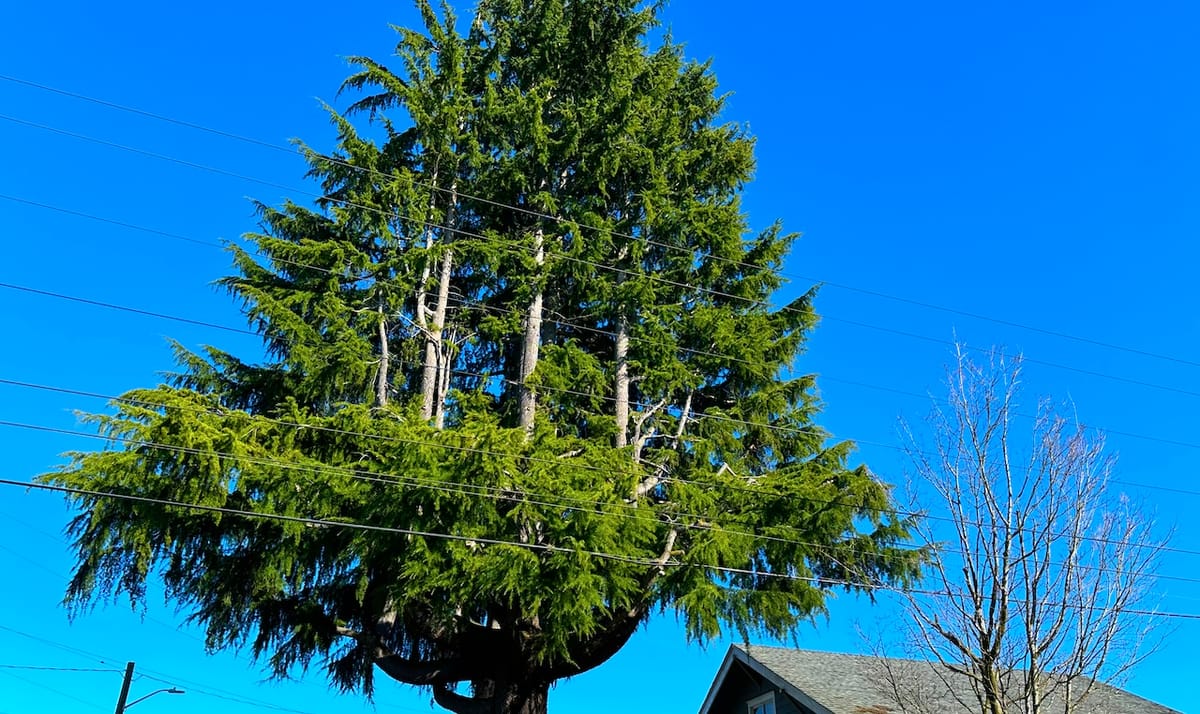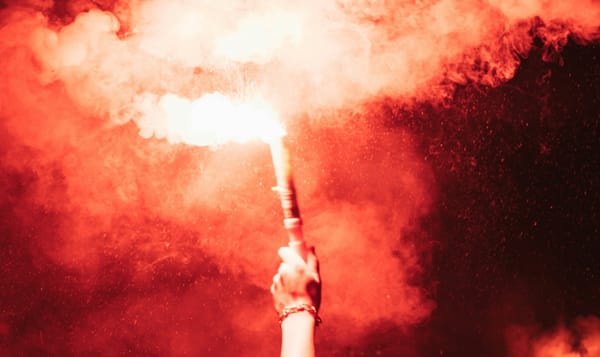disability justice and belonging

This post is narrated! Listen below…
What does it mean to belong? I heard many fantastic speakers cover this topic at the 2024 Othering and Belonging conference last month. john a. powell remarked that we humans are all connected to each other. This is true whether we’re aware of it or not; whether we resist it or not. To him, belonging means co-creating and co-owning the structures of our society. But co-creation is near impossible in a society that doesn’t treat all people as equals.
Imani Barbarin spoke on the first day of the conference. [May 20 update: Her speech is now available on youtube.] If you don’t know Imani, she goes by crutches and spice online. Imani is “a graduate of Eastern Univerity with a degree in Creative Writing and a minor in French from the Sorbonne. She writes from the perspective of a black woman with Cerebral Palsy.” Like any good speaker, Imani’s speech has echoed in my mind since I first heard her. One quote in particular sticks out. “I always say, when I’m feeling mean and sarcastic, that the only thing separating me from you is luck and time.”
Imani reminded us that american society has long pushed out people with disabilities. For more than a century (and until the 1970s) it was illegal to be in public and disabled in parts of the country. But people with disabilities had to be the architects of their own belonging. They used their bodies and their activism to advance the inclusion that we all enjoy today. That doesn’t mean the work is over, or that society no longer others people with disabilities. “I don’t feel bad about my disability,” Imani said. “I feel bad about the way people treat me because of it.” She implored the audience to look at the disability angle even when we think it won’t impact us.
disability justice is ongoing
When I wrote my post about the conference last week, Imani’s words were already fading from my memory. It took my colleague and friend Elizabeth Ralston to bring them back to the front of my mind. In her comment to me, she wrote: “I would love to see some focus, too, around disability and accessibility as a part of the belonging conversation, particularly in the arts. Too often this gets left out…” Elizabeth is an accessibility consultant in Seattle (you can visit her website at elizabethralston.com). She’s also the founder of the Seattle Cultural Accessibility Consortium (SCAC). SCAC advocates for the arts sector to become accessible to people of all abilities. Art is a universal part of cultures around the world. We all have something to contribute (unless you’ve heard me sing karaoke).
I’m humbled and grateful that Elizabeth took the time to draw attention to my oversight. As Imani pointed out, many people’s disabilities are not apparent to others. Other people have disabilities that are normalized or accommodated in society. These days I wear glasses more often than not. I developed tendinitis before the trip and limped around Oakland for most of the week. But even then, I resisted considering this change to my access needs. For instance, I hesitated to get lunch from the accessibility table. I chose instead to hobble down the stairs to stand in line for my box lunch. Thinking back, I may have felt like I didn’t “count” as disabled. I didn’t consider how an implicit bias against people with disabilities could be showing up in my perception of myself.
For the most part, society accommodates my disabilities, like my glasses. Not every disability gets the same treatment. How can people with disabilities feel belonging if they’re neglected or left out? How can we co-create our society if they can’t access decision-making spaces?
According to the United Nations, people with disabilities represent the world’s largest minority group. In Seattle, at least 18.9% of people in Seattle’s King County reported living with a disability. We all have a role to ensure that people in this group feel supported and included in public and private spaces. We must do so without taking away people’s agency or limiting their involvement in plans.
being an ally to people with disabilities
I wanted to know, how can I as a non-disabled person support my comrades with disabilities? Elizabeth shared with me a style guide for why “non-disabled” is a preferred descriptor for people without a permanent disability. How can I advocate for accessibility in the spaces I’m in? I started by looking for recommendations written by people with disabilities. Sins Invalid is a disability justice organization based in San Francisco, CA. They “celebrate artists with disabilities, centralizing artists of color and LGBTQ/gender-variant artists.” They adapted and shared Patty Berne’s working draft on disability justice:
A disability justice framework understands that:
- All bodies are unique and essential.
- All bodies have strengths and needs that must be met.
- We are powerful, not despite the complexities of our bodies, but because of them.
All bodies, in all their complexity and wonder, are essential to society. No one is disposable. This framework gives us a foundation for solidarity. They write, “All bodies are confined by ability, race, gender, sexuality, class, nation state, religion, and more, and we cannot separate them.”
Sins Invalid offers access suggestions for venues like public events or mobilizations (like protests). Their suggestions consider the access needs of many. For instance, they suggest ensuring a variety of sitting options for participants. Consider too how people will come and go from an event. What does someone need to know if they’re traveling by car or public transit? For events I host, I can include the accessibility options that will be available to guests. I can also name a point person so people can share any needs that aren’t covered by our existing plans. Another example I learned is that ASL interpreters and live captioning are not interchangeable! Some people prefer the nuance of ASL interpretation that written text can’t convey. On the other side, not every person who is deaf or hard of hearing knows ASL. As a facilitator, I can insist that everyone use microphones when they speak, even if they claim to be “super loud.”
Here’s something else I needed to work on. I need to recognize my implicit bias towards people with disabilities. I worked on the covid-19 vaccine rollout just as people were getting tired of hearing about it. In my work I met with some of the coordinators who set up vaccination events. I asked about accessibility at an upcoming event, but this location was simply inaccessible. The building had stairs but no ramps. They had interpreters, but only in one or two languages. I could have pushed harder on the accessibility issues at this event. Instead, I let it go. I worried it was an issue but could’ve done more to address my concerns. Access issues can feel like an afterthought to many people. This is especially true in emergency situations. But people with disabilities experience those emergencies, too. I have to speak up, every time, about the impact ignorance or neglect can have on real people. If I don’t speak up, people could miss out.
on universal design
In her writing, Elizabeth Ralston stresses a focus on universal design principles. These principles ensure that systems benefit everyone, rather than segregating users by needs. Elizabeth cites the “curb-cut” effect in a post she wrote about universal design. It would be needless and too complex to create a separate sidewalk for people with disabilities. The same is true for other efforts. Instead, we should adapt existing systems to work for more people and our diverse needs.
Another local organization I found is The ARC of King County. They advocate for people with disabilities and their full inclusion in society. One of the links on their resources page is how to fight ableism as a non-disabled person. I can do more to learn about disability rights and disability justice. I can also speak up about the intersectionality of disability justice. Many recognize that white-centered activism takes up airtime even in disability spaces. I’ve taught clients that the issues disabled people face compound when that face is Black or Brown.
There’s so much that we can do, whether disabled or not, to fight to include everyone in the world we share. I’ll leave it to Sins Invalid to share the last word. We need each other. We can’t do this otherwise.
Developing relationships with people with disabilities and asking us what we need is key. Inquire about where your body can be most useful in interrupting fascism, protecting immigrants, closing concentration camps, ending police brutality, honoring Indigenous sovereignty, and safeguarding the future of the planet and all its inhabitants. Invite us, strategize with us, bring all your skills and strengths. Don’t forget us. We are central to this movement and the future we are creating together.
Special thanks again to Elizabeth Ralston for reviewing this essay. She recommended some edits that helped me be more inclusive and supportive of people with disabilities. If you’re interested in improving accessibility at your workplace or community group, please reach out to her!



